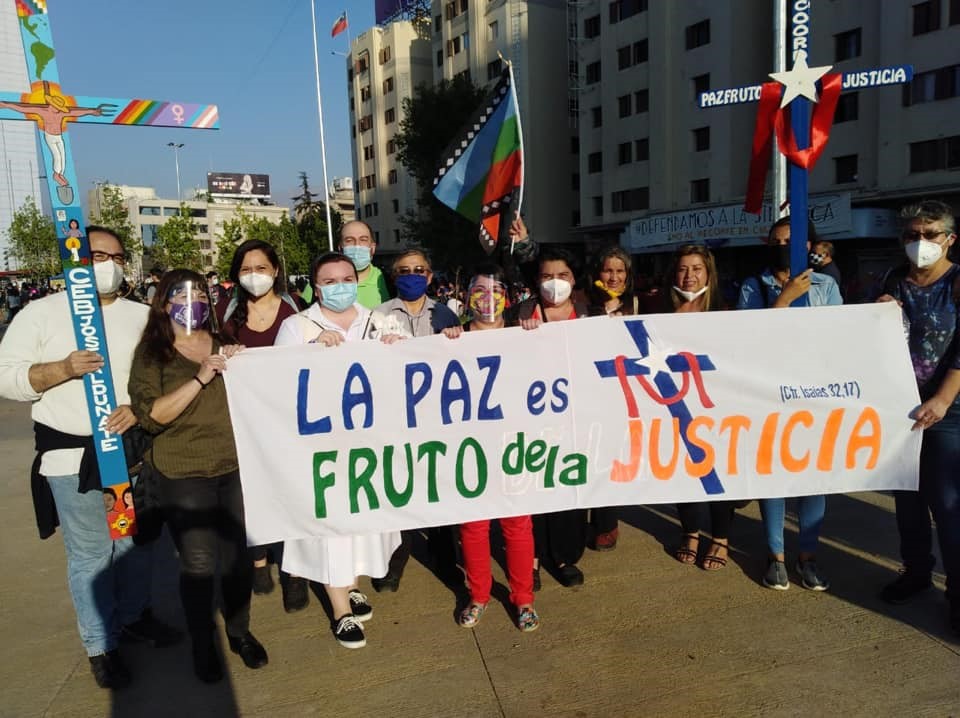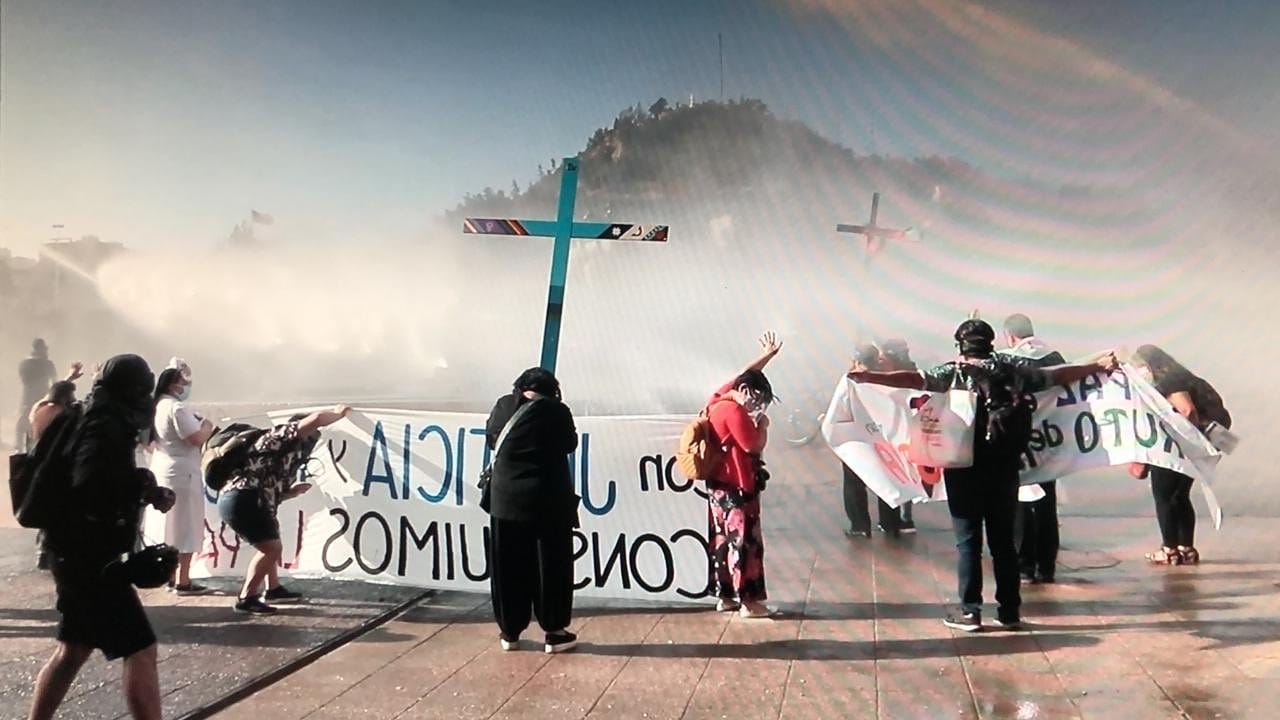Putaendo (Chile), 02/28/2022, Sr. Licarayén Torres Muñoz.- During the year 2019, a historic event took place in Chile which, although many did not see it that way, came to change the path our country was following after the return to democracy. The media reported what was happening, especially in the big cities, but also in all corners of our country. Social discontent had "exploded" after years of injustice, lies and corruption, Chile rose up to shout loudly that life could not go on in the same way.

Many were the demands that were heard in those days, the posters that filled the streets were and still are the photograph of a reality that, although opaque to the powerful, was the most concrete and hardest for the vast majority of Chileans. On 18 October, the bomb that had been built for decades with every tear shed, especially by the poorest of our land, exploded; on 18 October, a new history began to be written and hope regained the place that had been taken away from it.
Faced with this convulsion of events, the Chilean Catholic Church did not remain unmoved, and although its hierarchy did not receive answers, the believers who put their lives on the line for the Gospel in the places that know so much about poverty, vulnerability and injustice, began to organise themselves. It was clear that the Word of God was the answer to the search for peace and justice in a Chile that cried strong and clear.
Thus the Coordinadora Paz de Justicia was created, a self-convened coordination inspired by the words of the Prophet Isaiah "Peace will be the fruit of justice" (Isaiah 32: 17), and began to walk accompanying the mobilisations, denunciations and searches of the people who were beginning to wake up.
When the co-ordinating committee had been going for some time, I began to participate in it, because in the relationship with lay people, brothers and sisters from other religious congregations, diocesan priests, among young people and adults, I found a space to cross the frontiers that, at this moment in history, Chile needs to cross. In the co-ordinating committee I found a place to contemplate with others the reality that cries out its urgency among fragilities and dreams, a place to listen to the anguished cries of the poor.
As time went by, a horizon began to emerge that we had not imagined at the beginning. Until now, Chile continued to be governed by a Constitution written under the dictatorship of Augusto Pinochet, in which the bias of a system that only sought to crush the smallest and exalt the power of the few could still be felt. The Constitution was already obsolete and it was time to write with new ink the Magna Carta of our country. In this search, all of us who participated in the Coordinadora Paz de Justicia had to study a lot to understand what was behind so many years of injustice. To write a new constitution means to give shape to all that we have dreamed of, where respect for the human being and the earth must once again be essential..
Today, after so much struggle, after so many young people who were blinded by the bullets that the police imposed on them, after so many young people who are still imprisoned without evidence or fair trial, Chile is beginning to rise up in a process that is also historic. Our new Constitution will be free and equal, where the diversity of our native peoples is represented and where all citizens will be the ones to say YES or NO to the work being done, through a plebiscite.
Now more than ever it is the task of the Church to accompany the paths that our country decides to take. Like Marie Poussepin, we must transcend all our borders and be present where life cries out. With others, like the Coordinadora Paz de Justicia, we must continue to make our way, promoting dialogue, a value that we carry in our Dominican blood. Today more than ever, Chile needs Christians who are consistent in their mission, who promote spaces of search and discernment, so that our participation in social and political events is rooted in the true values of the Gospel and not in outdated ideas of structures that are no longer meaningful for our brothers and sisters. Synodality is not only an exercise behind closed doors; today our country teaches us that it is a process that we must live in the street, in constant conversation with the peripheries that are no longer so distant.
Being part of this Coordinating Committee is an impulse to remember that the Charism of Marie Poussepin is a constant movement between Dourdan and Sainville, that only by moving, in order to better contemplate our world, will it be possible to live in the exercise of charity.



 EN
EN  ES
ES  FR
FR 



